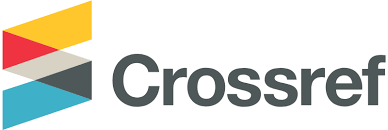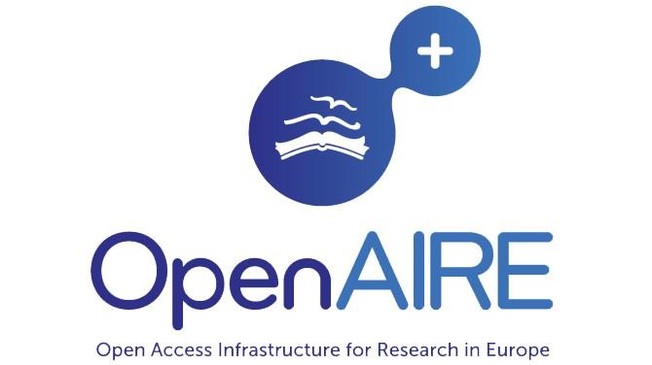PENGEMBANGAN GAMIFIKASI UNTUK MELATIHKAN KOLABORASI SISWA SMA PADA MATERI TERMODINAMIKA
DOI:
https://doi.org/10.21009/03.1102.PF28Abstract
Abstrak
Penelitian ini bertujuan untuk mengembangkan desain gamifikasi pada materi termodinamika untuk melatihkan kolaborasi siswa. Pengembangan ini dilakukan dengan metode Research and Development (R&D) pendekatan ADDIE (Analysis, Design, Development, Implementation, Evaluation). Pada tahap Analysis dilakukannya studi literatur untuk mengidentifikasi dan mengumpulkan informasi terkait produk yang akan dikembangkan. Selanjutnya, merancang desain produk dengan membuat materi, latihan soal, dan peraturan pada e-learning. Pengembangan gamifikasi ini berbantuan teknologi e-learning yaitu Classcraft. Classcraft menambahkan lapisan game petualangan di atas infrastruktur kursus yang sudah tersedia. Desain gamifikasi yang sudah dikembangkan kemudian melalui tahapan uji validasi oleh ahli materi, ahli media, ahli pembelajaran, dan ahli perangkat lunak serta dilakukan uji coba pada guru dan siswa. Hasil dari penelitian ini adalah desain gamifikasi pada materi termodinamika yang digunakan untuk melatihkan kolaborasi siswa dengan cara siswa berkolaborasi dengan kelompoknya untuk menyelesaikan quest, memperoleh XP dan Crystal, menjaga Health sesama anggota kelompok, serta menghindari hukuman. Sehingga desain gamifikasi berbantuan teknologi e-learning Classcraft dapat menjadi media pembelajaran fisika yang dapat melatihkan kolaborasi siswa.
Kata-kata kunci: Gamifikasi, E-learning, Classcraft, Termodinamika, Pembelajaran kolaboratif
Abstract
This study aims to develop a gamification design on thermodynamic material to practice student collaboration. This development was carried out using the Research and Development (R&D) method with the ADDIE approach (Analysis, Design, Development, Implementation, Evaluation). At the Analysis stage, a literature study is carried out to identify and collect information related to the product to be developed. Next, designing product designs by making materials, practice questions, and rules on e-learning. The development of this gamification is assisted by e-learning technology, namely Classcraft. Classcraft adds a layer of adventure games to the existing course infrastructure. The gamification design that has been developed then goes through a validation test stage by material experts, media experts, learning experts, and software experts and is tested on teachers and students. The result of this research is the design of gamification on thermodynamic material that is used to practice student collaboration through students collaborating with their groups to complete quests, earn XP and Crystals, maintain the health of fellow group members, and avoid punishment so that the gamification design assisted by Classcraft e-learning technology can be a physics learning medium that can train student collaboration.
Keywords: Gamification, E-learning, Classcraft, Thermodynamics, Collaborative learning
References
[2] R. P. Rangkuti, I. K. Nasution, R. Yurlian, “Kecenderungan Kecanduan Game Online pada Remaja selama masa Pandemi COVID-19,” Prosiding TEMILNAS XII, 2020.
[3] K. Siste, E. Hanafi, L. T. Sen, P. O. P. Wahjoepramono, A. Kurniawan, R. Yudistiro, “Potential Correlates of Internet Gaming Disorder Among Indonesian Medical Students: Cross-sectional Study,” Journal of Medical Internet Research Publications, vol. 23, no. 4, 2021.
[4] I. M. Gómez-Trigueros, “Methodologies Gamified as Didactic Resources for Social Sciences,” International Journal of Emerging Technologies in Learning (iJET), vol. 14, no. 23, pp. 193-207, 2019.
[5] C. Dichev, D. Dicheva, “Gamifying Education: What is Known, What is Believed and What Remains Uncertain: A Critical Review,” International Journal of Educational Technology in Higher Education, vol. 14, no. 1, pp. 1-36, 2017.
[6] S. Papadakis, M. Kalogiannakis, “Using Gamification for Supporting an Introductory Programming Course, The Case of ClassCraft in a Secondary Education Classroom,” Springer International Publishing (ICST), pp. 366-375, 2018.
[7] M. Alsubhi, N. S. Ashaari, T. S. M. T. Wook, “The Challenge of Increasing Student Engagement in E-Learning Platforms,” International Conference on Electrical Engineering and Informatics (IEEE) Xplore, pp. 266-271, 2019.
[8] M. Huda, A. Maseleno, P. Atmotiyoso, M. Siregar, R. Ahmad, K. A. Jasmi, N. H. N. Muhamad, “Big Data Emerging Technology: Insights into Innovative Environment for Online Learning Resources,” International Journal of Emerging Technologies in Learning (iJET), vol. 13, no. 1, pp. 23-36, 2018.
[9] N. Vidakis, A. K. Barianos, A. M. Trampas, S. Papadakis, M. Kalogiannakis, K. Vassilakis, “Generating Education in-Game Data: The Case of an Ancient Theatre Serious Game,” SCITEPRESS, 2019.
[10] A. Madalina. Membrive, Veronica, “Beyond Gamification: Classcraft as an Engagement Tool in The Teaching of English as a Second Language,” International Conference on Education and New Development, 2020.
[11] R. Al-Azawi, F. Al-Faliti, M. Al-Blushi, “Educational Gamification vs Game Based Learning: Comparative Study,” International journal of innovation, management and technology (IJIMT), vol. 7, no. 4, pp. 132-136, 2016.
[12] Suroso, “Analisis Kesalahan Siswa Dalam Mengerjakan Soal-Soal Fisika Termodinamika pada Siswa SMA Negeri 1 Magetan,” JEMS: Jurnal Edukasi Matematika dan Sains, vol. 4, no. 1, pp. 8-18, 2016.
[13] B. Iancu, “Gamification Applied in Computer Science Education: A Preliminary Approach,” Economy Informatics, vol. 19, no. 1, pp. 52-58, 2019.
[14] F. F. H. Nah, Q. Zeng, V. R. Telaprolu, A. P. Ayyappa, B. Eschenbrenner, “Gamification of Education: A Review of Literature,” Springer International Publishing, pp. 401-409, 2014.
[15] ClassCraft Studios Inc, “Classcraft,” ClassCraft Studios Inc, 2014 [Online], Available: help.classcraft.com. [Accessed 30 March 2022].
[16] E. Sanchez, S. Young, C. J. Sion, “Classcraft: From Gamification to Ludicization of Classroom Management,” Education and Information Technologies, vol. 22, pp. 497-513, 2017.
[17] D. A. Haris, E. Sugito, “Analysis of Factors Affecting User Acceptance of the Implementation of ClassCraft E-Learning: Case Studies Faculty of Information Technology of Tarumanagara University,” International Conference on Advanced Computer Science and Information Systems IEEE Xplore, pp. 73-78, 2015.
[18] K. Wiyono, K. Sury, R. N. Hidayah, N. Nazhifah, I. Ismet, S. Sudirman, “STEM-based E-learning: Implementation and Effect on Communication and Collaboration Skills on Wave Topic,” Jurnal Penelitian & Pengembangan Pendidikan Fisika, vol. 8, no. 2, pp. 259-270, 2022.
[19] C. U. Bilgin, A. Gul, “Investigating the Effectiveness of Gamification on Group Cohesion, Attitude, and Academic Achievement in Collaborative Learning Environments,” TechTrends, vol. 64, no. 1, pp. 124-136, 2020.
[20] H. F. Hasan, M. Nat, V. Z. Vanduhe, “Gamified Collaborative Environment in Moodle,” IEEE Xplore, vol. 7, pp. 89833-89844, 2019.




